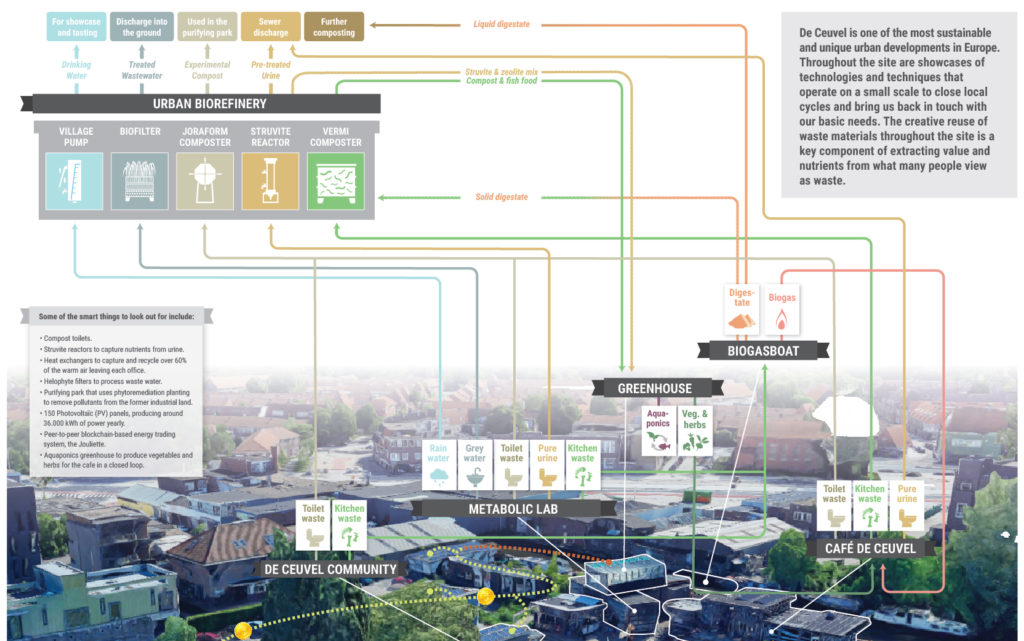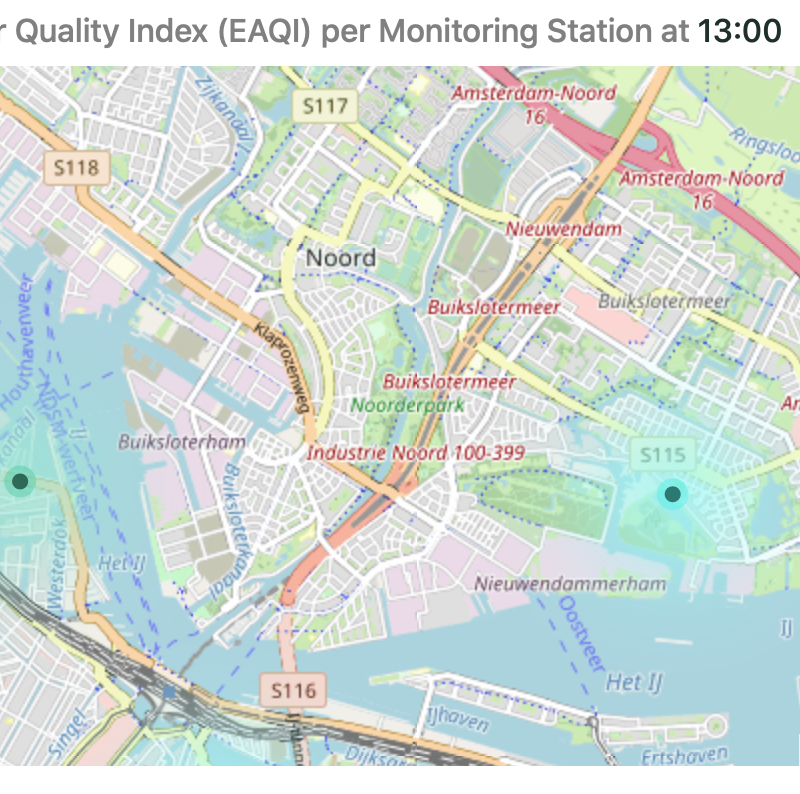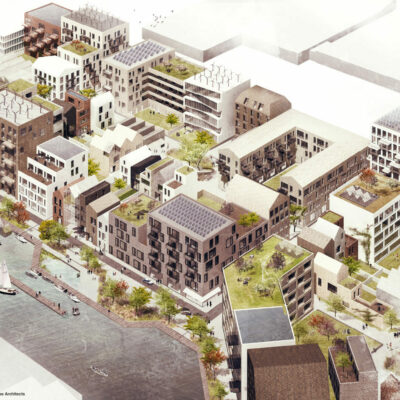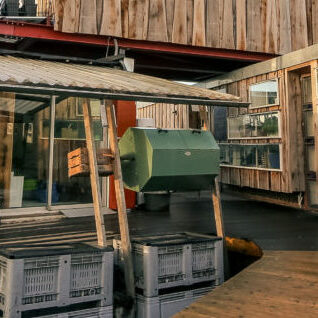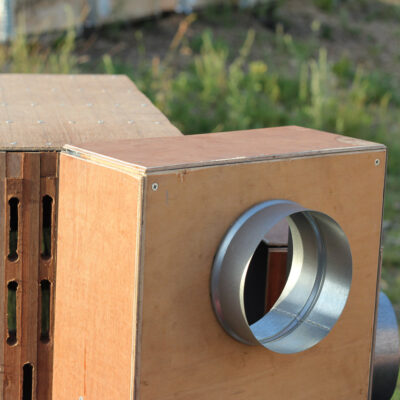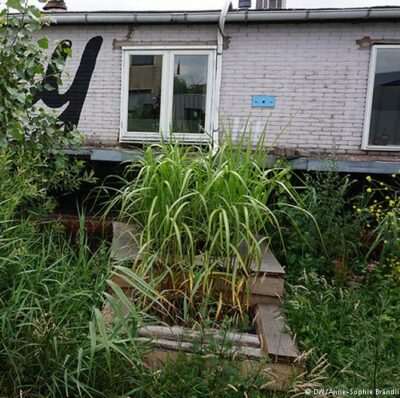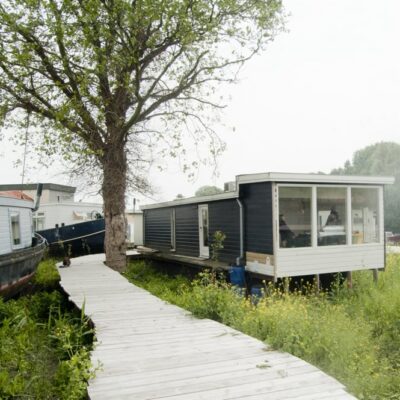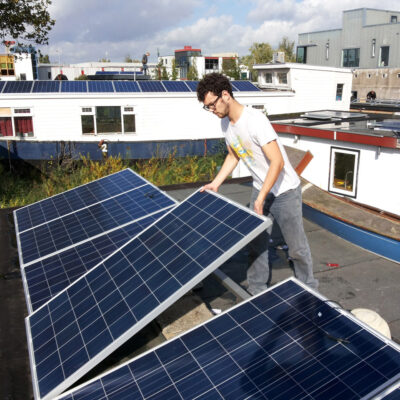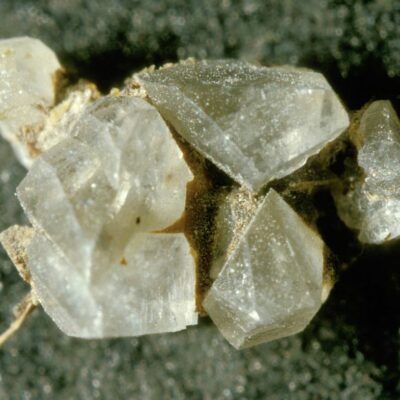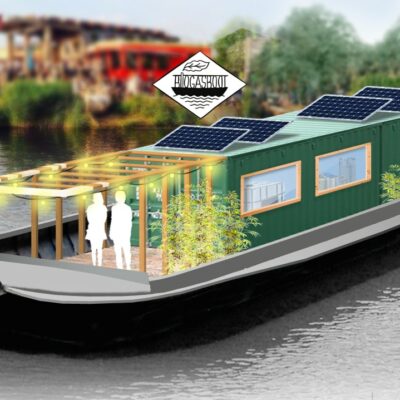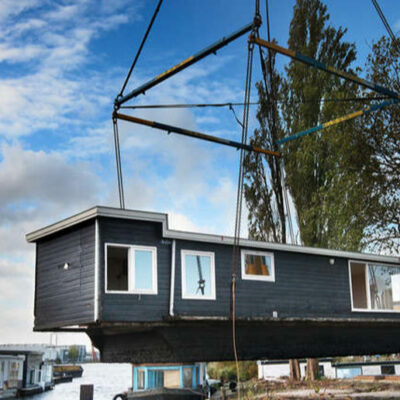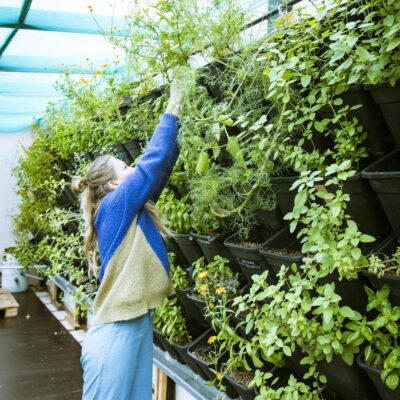Like many areas of Buiksloterham, the area underneath de Ceuvel is polluted by almost a century of heavy industry. Normally such polluted ground is removed and mixed with clean ground, thus moving the problem to another space. At De Ceuvel we want to handle this differently, a ‘forbidden garden’ was designed by DELVA Landscape Architects using plants that are known to be particularly good at absorbing these pollutants through their roots, a simple technique with a complex name: ‘phytoremediation’.
The soil between our boats is cultivated and maintained as a Zuiverend Park (Purifying Park): a green environment that grows specific sets of plants, which absorb, stabilize or exhaust high concentrations of pollution. To protect both human- and plant-health, we built a raised jetty over the park. Eventually the plants will help us to leave the ground much cleaner than we initially found it, while in the meantime, as De Ceuvel demonstrates, there can be other uses for the space.
Until today, the practice of phytoremediation has only limitedly been used for small, urban areas. Zuiverend Park is part of the unique ‘Cleantech Playground’ belonging to De Ceuvel: we aim to increase our knowledge of this technique in order to improve it, and, ultimately, to transfer our experiences to a larger audience. Due to this learning process, our way of cultivating and maintaining the park develops over time. Now, in 2017, the original plan (designed by the Delva Landscape Architects in 2014) has only left us with the willows, poplars and some grasses. Since 2016 we have been taking a closer look at the plants that spontaneously stem from the polluted soil. We carefully examine their use for phytoremediation, while simultaneously sowing plants that are already known for their metal absorbing qualities. This combination seems to work out really well!
Delva's original purifying plants mix:
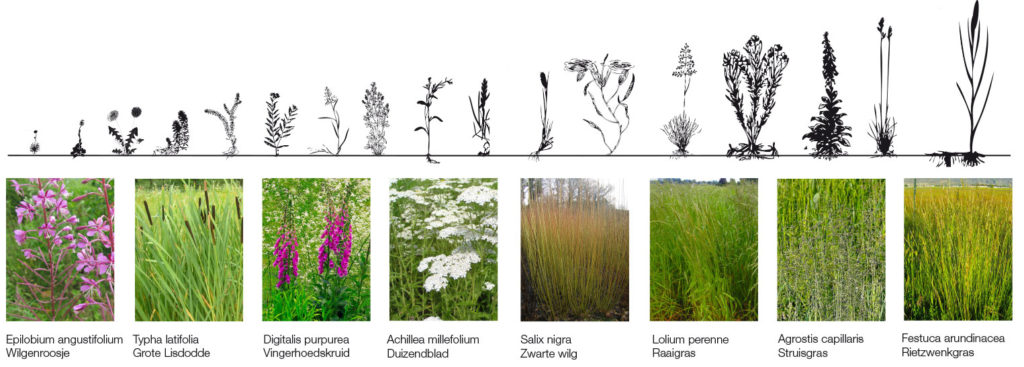
Do you want to help and learn more about phytoremediation?
On the 3rd Wednesday of every month, a group of volunteers attend to the park. You are more than welcome to join one of these fun, relaxing parkdays -- whether you have green fingers or not! We start at 13.00 with a small guided tour and more information about phytoremediation. From 13:30-16:30 we work (and play) in the park. Sign up via zuiverendpark@deceuvel.nl or just visit De Ceuvel during one of the parkdays.
